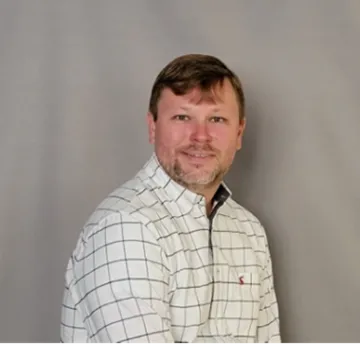When
Presenter
Dr. Michael Taylor
Assistant Professor, Chemistry and Biochemistry, The University of Arizona
Abstract
Covalent protein modification chemistries have become an essential component to a wide array of fields ranging from drug discovery and chemical biology to materials chemistry. As a result, the development of new bioconjugation chemistries with enhanced sophistication and new capabilities serve to not only enable access to protein conjugates with new functional properties, but can also provide unique lenses through which to probe biological structure and processes directly in situ. This seminar will discuss recent efforts by our group to develop unique chemical transformations that covalently modify biological matter via unusual or underexplored mechanistic pathways and their application in the study of complex biological systems.

Bio-sketch
Michael grew up in Salisbury, Maryland. He received his B.S. from Salisbury University in 2006, where he was an undergraduate researcher in Professor Elizabeth Papish’s group. He received his Ph.D. in 2013 from the University of Delaware, where he worked in Professor Joseph Fox's laboratory. His research in the Fox group focused on the development of new synthetic methods, the total synthesis of natural products, and the development of bio-orthogonal chemistry. Michael then moved to the United Kingdom to take up a post-doctoral position in the laboratory of Professor Matthew Gaunt at the University of Cambridge, where he was awarded a Marie Curie Postdoctoral Fellowship in 2014. His research at Cambridge primarily focused on the development of a non-classical reactive platform for the selective chemical modification of proteins. In 2017, Michael moved back across the pond to take up his position in the Chemistry Department at the University of Wyoming. In August of 2022, Michael moved to the University of Arizona as an Assistant Professor in the Department of Chemistry & Biochemistry. Michael’s research program is underpinned by an interest in developing organic transformations for use at the chemistry-biology interface.






